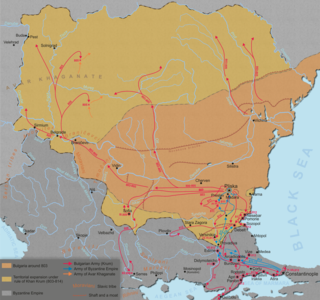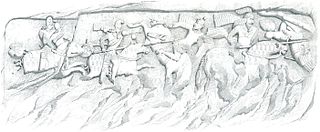This article includes a list of references, related reading, or external links, but its sources remain unclear because it lacks inline citations .(November 2022) |
The Tabarian calendar is the indigenous solar calendar of the Mazandaranis and Gilaks.
This article includes a list of references, related reading, or external links, but its sources remain unclear because it lacks inline citations .(November 2022) |
The Tabarian calendar is the indigenous solar calendar of the Mazandaranis and Gilaks.
| Tabarian months | Equivalent in Solar hijri | Equivalent in Gregorian |
|---|---|---|
| 1.Fardine Ma | 2 Mordad - 31 Mordad | 24 July - 22 August |
| 2.Kerche Ma | 1 Shahrivar - 30 Shahrivar | 23 August - 21 September |
| 3.Hare Ma | 31 Shahrivar - 29 Mehr | 22 September - 21 October |
| 4.Tire Ma | 30 Mehr - 29 Aban | 22 October - 20 November |
| 5.Melare Ma | 30 Aban - 29 Azar | 21 November - 20 December |
| 6.Shervine Ma | 30 Azar - 29 Dey | 21 December - 19 January |
| 7.Mire Ma | 30 Dey - 29 Bahman | 20 January - 18 February |
| 8.Une Ma | 30 Bahman - 29 Esfand | 19 February - 20 March |
| Shishek Pitek | 30 Esfand - 5 Farvardin | 21 March - 25 March |
| 9.Arke Ma | 6 Farvardin - 4 Ordibehesht | 26 March - 24 April |
| 10.De Ma | 5 Ordibehesht - 3 Khordad | 25 April - 24 May |
| 11.Vahmane Ma | 4 Khordad - 2 Tir | 25 May - 23 June |
| 12.Nurze Ma | 3 Tir - 1 Mordad | 24 June - 23 July |

Ezekiel, also spelled Ezechiel, was an Israelite priest. The Book of Ezekiel, relating his visions and activities, is named after him.

Year 803 (DCCCIII) was a common year starting on Sunday of the Julian calendar.

Year 633 (DCXXXIII) was a common year starting on Friday of the Julian calendar. The denomination 633 for this year has been used since the early medieval period, when the Anno Domini calendar era became the prevalent method in Europe for naming years.

Year 224 (CCXXIV) was a leap year starting on Thursday of the Julian calendar. At the time, it was known as the Year of the Consulship of Iulianus and Crispinus. The denomination 224 for this year has been used since the early medieval period, when the Anno Domini calendar era became the prevalent method in Europe for naming years.
A solar calendar is a calendar whose dates indicate the season or almost equivalently the apparent position of the Sun relative to the stars. The Gregorian calendar, widely accepted as a standard in the world, is an example of a solar calendar. The main other types of calendar are lunar calendar and lunisolar calendar, whose months correspond to cycles of Moon phases. The months of the Gregorian calendar do not correspond to cycles of the Moon phase.
The Iranian calendars or Iranian chronology are a succession of calendars created and used for over two millennia in Iran, also known as Persia. One of the longest chronological records in human history, the Iranian calendar has been modified many times for administrative, climatic, and religious purposes. The most influential person in laying the frameworks for the calendar and its precision was the 11th century Persian polymath, Omar Khayyam. The modern Iranian calendar is currently the official civil calendar in Iran.

Mazandaran Province is one of the 31 provinces of Iran. Its capital is the city of Sari. Located along the southern coast of the Caspian Sea and in the adjacent Central Alborz mountain range, the province is in the central-northern part of the country. Mazandaran, founded in 1937, covers an area of 23,842 km2.
Abū Jaʿfar Muḥammad ibn Jarīr ibn Yazīd al-Ṭabarī, commonly known as al-Ṭabarī, was a Sunni Muslim scholar, polymath, historian, exegete, jurist, and theologian from Amol, Tabaristan, now in present-day Iran. Among the most prominent figures of the Islamic Golden Age, al-Tabari is widely known for his historical works and expertise in Quranic exegesis, and has been described as "an impressively prolific polymath". He authored works on a diverse range of subjects, including world history, poetry, lexicography, grammar, ethics, mathematics, and medicine. Among his most famous and influential works are his Quranic commentary, Tafsir al-Tabari, and historical chronicle, Tarikh al-Tabari.

Yusuf is a prophet and messenger of God mentioned in the Quran and corresponds to Joseph, a person from the Hebrew and Christian Bible who was said to have lived in Egypt before the New Kingdom. Of Jacob's children, Joseph reportedly had the gift of prophecy through dreams. Although the narratives of other prophets are presented in a number of surahs, Joseph's complete narrative appears in only one: Yusuf. Said to be the most detailed narrative in the Quran, it contains more details than its biblical counterpart.

Mazandarani is an Iranian language of the Northwestern branch spoken by the Mazandarani people. As of 2021, there were 1.36 million native speakers. The language appears to be decreasing, as it is threatened, and due to the majority of its speakers shifting to Iranian Persian. As a member of the Northwestern branch, etymologically speaking, it is rather closely related to Gilaki and also related to Persian, which belongs to the Southwestern branch. Though the Persian language has influenced Mazandarani to a great extent, Mazandarani still survives as an independent language with a northwestern Iranian origin.
Mazanderani, Mazandarani, or Tabarian may refer to:
The Armenian calendar is the calendar traditionally used in Armenia, primarily during the medieval ages.
Nima is a Persian male given name popular in Iran. It is also a popular female given name in India meaning "moon" and is derivative of the Sanskrit given name "Purnima", meaning "full" (pur) + "moon" (nima).

The Tabarian New Year, or Neowrez, occurs in the pintek days of the Tabarian Calendar.
Muhammad's first revelation was an event described in Islamic tradition as taking place in 610 CE, during which the Islamic Prophet Muhammad was visited by the angel Jibril (Gabriel), who revealed to him the beginnings of what would later become the Qur'an. The event took place in a cave called Hira, located on the mountain Jabal An-Nour near Mecca.
The Rumi calendar, a specific calendar based on the Julian calendar, was officially used by the Ottoman Empire after Tanzimat (1839) and by its successor, the Republic of Turkey until 1926. It was adopted for civic matters and is a solar based calendar, assigning a date to each solar day.
The expedition of Dhat al-Riqa took place in July AD 625, or after the Battle of Khaybar in AD 628, i.e. AH 7 of the Islamic calendar. Two Quran verses, 5:11 and 4:101, are related to this event.
Abu Bakr Muhammad ibn Dawud al-Zahiri, Abū Bakr Muḥammad ibn Dāwūd al-Iṣbahānī, also known as Avendeath, was a medieval theologian and scholar of the Arabic language and Islamic law. He was one of the early propagators of his father Dawud al-Zahiri's method in jurisprudence, Zahirism.
Abdallāh ibn Aḥmad ibn Muḥammad, better known as Ibn al-Mughallis, was a medieval Arab Muslim theologian and jurist.
Mazandarani culture includes existing social characteristics and norms as well as beliefs, arts, laws, customs and traditions that are common among the Mazandarani people.